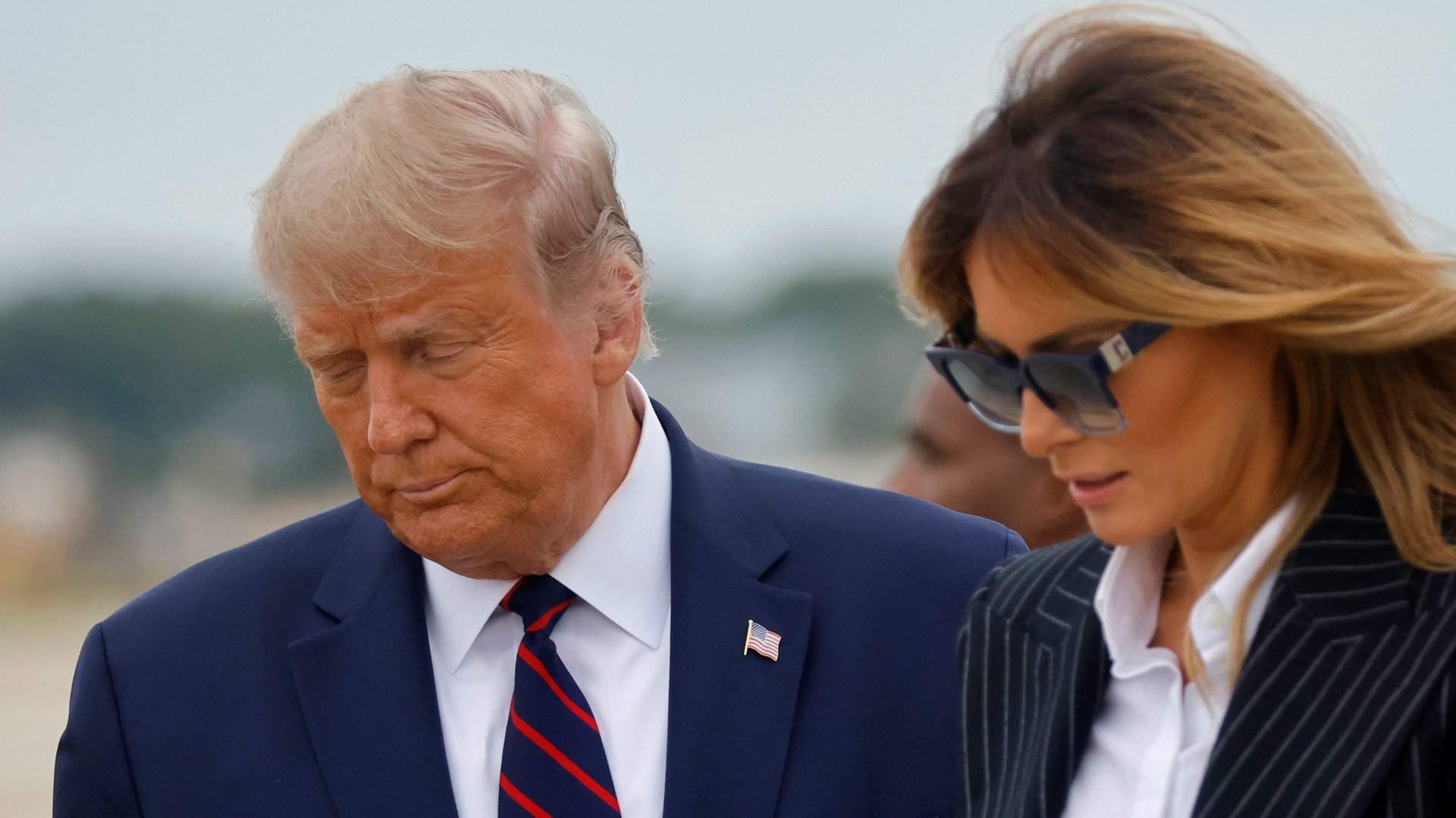Global stock markets fall after Trump confirms he has Covid-19
Stock markets from Tokyo to Sydney fell after US president Donald Trump and his wife Melania tested positive for Covid-19. The diagnosis raises questions about the course of a presidential election that’s only a month away.


Stock markets from Tokyo to Sydney fell after US president Donald Trump and his wife Melania tested positive for Covid-19. The diagnosis raises questions about the course of a presidential election that’s only a month away.
Traders are selling riskier assets. Japan’s Topix 100 Index of equities declined about 1.8%, and the S&P 500 Index of large US companies fell about 0.7%. Some haven assets ticked higher, as 10-year US Treasury bond yields, which decline when prices on the securities increase, initially fell before drifting slightly higher. The US dollar and Japanese yen rose against most other currencies.
“The path of the election campaign will inevitably change,” Kit Juckes of French bank Societe Generale wrote in an email. The focus may shift to US vice-president Mike Pence, making his debate with senator Kamala Harris an even higher-profile event next week.
The VIX Index, a measure of expected price swings (volatility) in the US stock market, also known as the fear gauge, rose about 6%. Traders typically sell riskier assets at times of uncertainty, often rotating into safer assets like Treasury bonds and the Japanese yen until they have more information.
Adding to the malaise, the US gained fewer jobs than forecast in September. While the unemployment rate fell more than expected, ticking down 0.5 percentage point to 7.9%, the labor-force participation dropped, particularly among women, signaling the economic recovery may be losing steam.
Professional traders have been bracing their portfolios for a tumultuous election and a contested vote. Mail-in voting is expected to surge, which could delay results, while Trump has railed against mail-in ballots and refused to commit to a peaceful transfer of power. Traders increased their bets today that volatility would persist beyond Election Day on Nov. 3.
The US president’s diagnosis raises a host of questions just weeks ahead of the most consequential American election since World War II, said Leslie Vinjamuri, director of US and the Americas Programme at Chatham House, a think tank, in an interview on Bloomberg Television. While Vinjamuri said she would expect the election to go ahead as scheduled in November, the scope for campaigning in the coming weeks will change and may no longer be possible.
Meanwhile, concerns about the health of the US commander-in-chief, who at age 74 is in the higher-risk category for people who have contracted the virus, inject another dose of uncertainty into the minds of investors. “The President and First Lady are both well at this time, and they plan to remain at home within the White House during their convalescence,” wrote Sean Conley, the president’s physician.
Risky assets fell in value, but the decline was far from anything resembling Armageddon. That suggests traders don’t see the event as a systemic concern, and that American institutions will be strong enough to absorb the turmoil.
The news may slightly increase the odds of a victory by Democratic candidate Joe Biden, who was already ahead in most polls, according to Sebastien Galy, senior macro strategist at Nordea Asset Management. The infection will likely highlight Trump’s handling of the pandemic in the US, which has had a higher rate of Covid-19 infections than other wealthy countries.
Galy said he expects the S&P 500 Index could fall another 1% or so, as a Republican administration is seen as more supportive for the stock market than a Democratic one. Facing negative news, the Trump administration may lash out at China, Galy said, creating another shock of volatility that could ripple through global markets.
“This is going to persist for a while,” Greg Valliere, chief US policy strategist at AGF Investments, said on Bloomberg Radio. A key question is whether Trump shows concerning symptoms of Covid-19, and whether other staffers become ill.
“I think this has legs,” he said. “Markets have to worry about this uncertainty for weeks to come.”